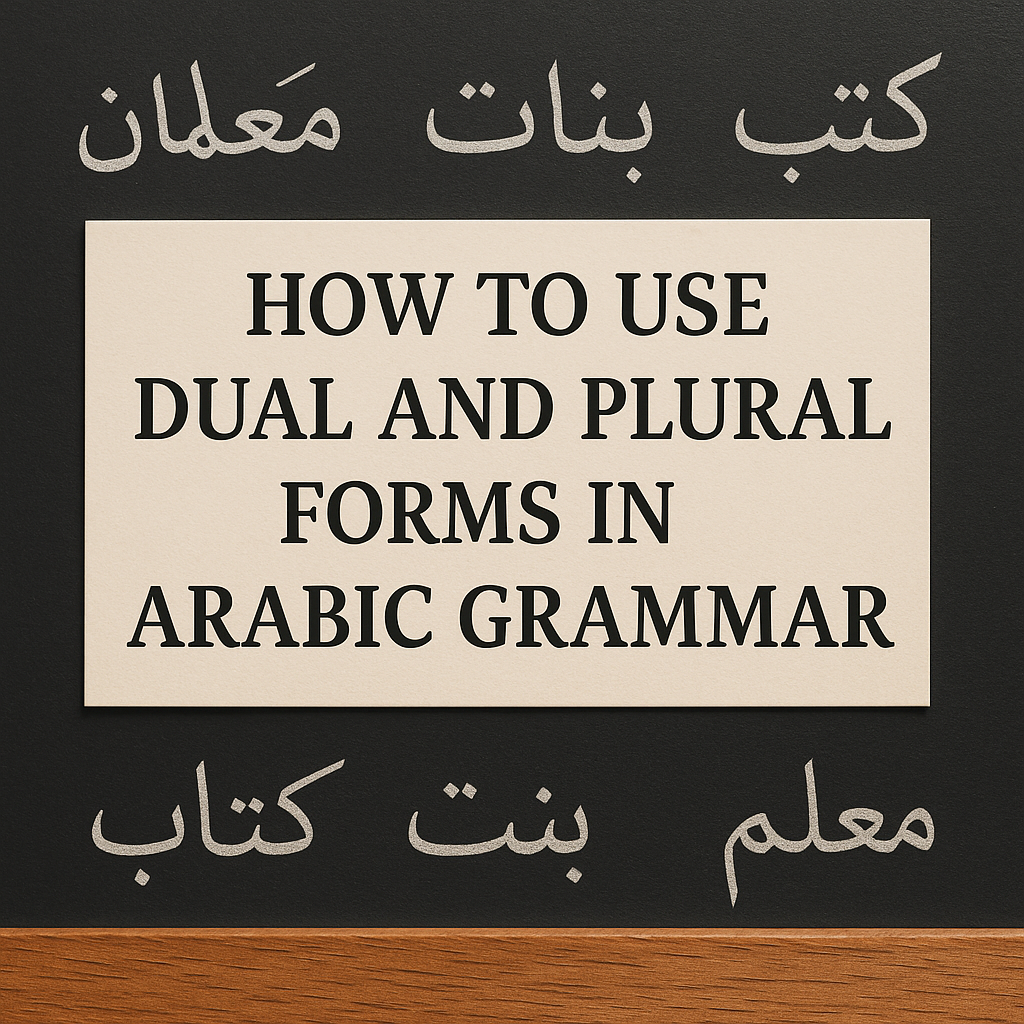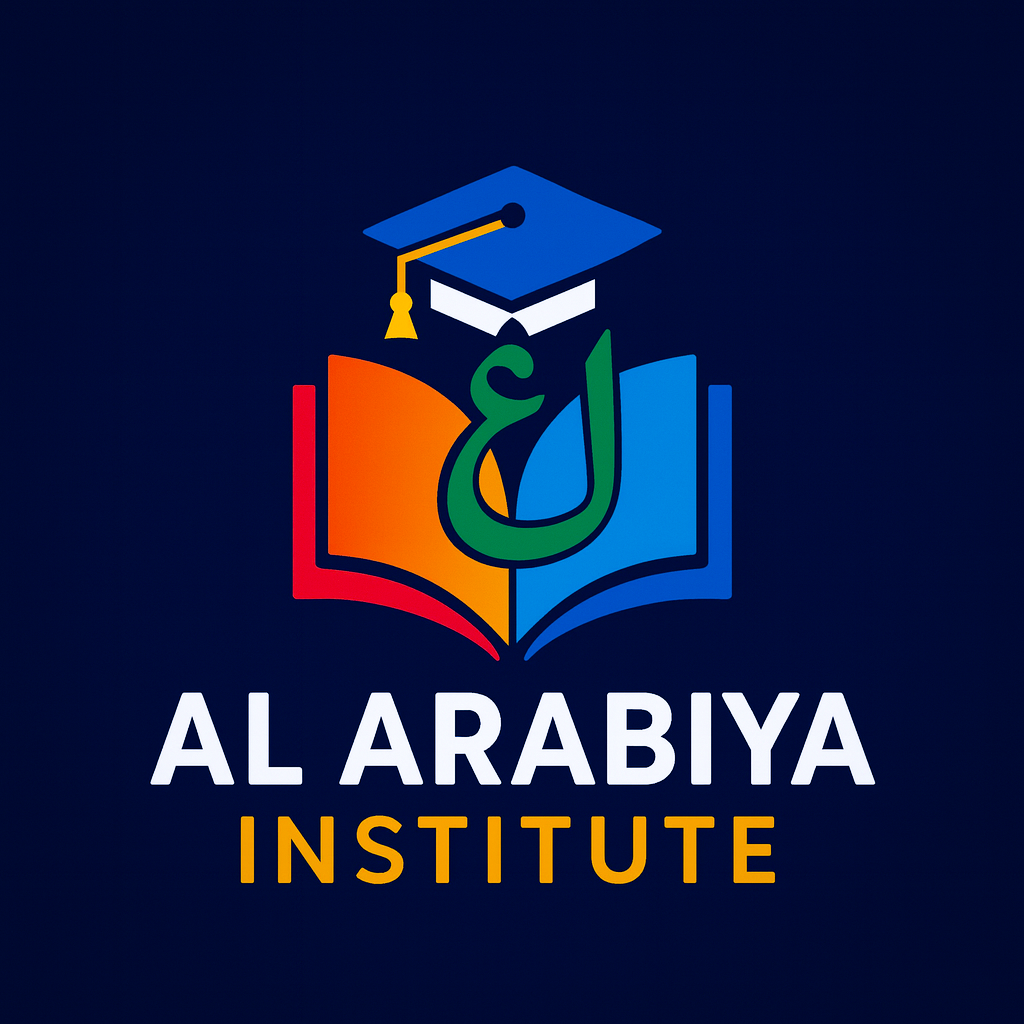How to Use Dual and Plural Forms in Arabic Grammar

Learning Arabic grammar is a rewarding yet challenging journey, especially when it comes to understanding how to properly use dual and plural forms in Arabic grammar. Unlike English, where plurals are mostly formed by simply adding an “-s” or “-es,” Arabic has a rich and complex system for singular, dual, and plural forms that learners must grasp to speak and write correctly.
In this comprehensive guide, we will explore how to use dual and plural forms in Arabic grammar, explain their types, rules, and provide practical examples. Whether you’re a beginner or looking to improve your Arabic, mastering these forms is essential. If you want to learn more with expert guidance, Al Arabiya Institute offers some of the best online Arabic courses, complete with affordable prices and free trial lessons.
Understanding the Basics: Singular, Dual, and Plural in Arabic
Arabic nouns can be singular (one), dual (two), or plural (more than two). This feature is unique compared to many languages and adds depth to Arabic grammar.
-
Singular (مفرد): Refers to one item or person (e.g., كتاب – book).
-
Dual (مثنى): Specifically refers to two items or people.
-
Plural (جمع): Refers to three or more items or people.
The focus on dual and plural forms in Arabic grammar means understanding their formation and usage in different contexts, including nouns, adjectives, verbs, and pronouns.
The Dual Form in Arabic
The dual form is a special grammatical number used only to indicate exactly two things. In English, we do not have a specific dual form, so Arabic learners must pay close attention.
How to Form the Dual
To form the dual of most nouns and adjectives in Arabic, add the suffix –انِ (-ān) or -َيْنِ (-ayn) depending on the grammatical case:
-
Nominative case (subject): Add –انِ (-ān)
-
Accusative and genitive cases (object and possessive): Add -َيْنِ (-ayn)
Examples:
| Singular | Dual (Nominative) | Dual (Accusative/Genitive) | English Translation |
|---|---|---|---|
| كتاب | كتابانِ | كتابَيْنِ | book / two books |
| طالب | طالبانِ | طالبَيْنِ | student / two students |
Usage of the Dual Form
-
The dual is used only when referring to exactly two entities.
-
It is applied in nouns, adjectives, and sometimes verbs.
-
Adjectives must agree with the dual noun in gender and number.
Example sentences:
-
ذهبتُ إلى المكتبتينِ.
(I went to the two libraries.) -
هذان طالبان مجتهدان.
(These two students are hardworking.)
Mastering the dual form is a key step in understanding dual and plural forms in Arabic grammar because it’s a form absent in many other languages.
The Plural Form in Arabic
Arabic plurals are more complex than the dual because they come in two main types: sound plurals and broken plurals.
Sound Plurals (الجمع السالم)
Sound plurals are regular and follow a predictable pattern. There are two types:
-
Masculine sound plural (جمع مذكر سالم): Usually for masculine nouns. Add –ونَ (-ūn) in the nominative and –ينَ (-īn) in accusative/genitive.
-
Feminine sound plural (جمع مؤنث سالم): Usually for feminine nouns ending with ة (taa marbuta). Replace ة with –ات (-āt).
Examples:
| Singular | Masculine Sound Plural (Nominative) | Feminine Sound Plural | English Translation |
|---|---|---|---|
| معلم | معلمونَ | — | teacher / teachers (m) |
| مدرسة | — | مدارس | school / schools (f) |
| طالبة | — | طالبات | female student / students |
Broken Plurals (الجمع المكسر)
Broken plurals do not follow a fixed pattern and often involve internal changes to the word’s root structure. They are common with many Arabic nouns and require memorization.
Examples:
| Singular | Broken Plural | English Translation |
|---|---|---|
| كتاب | كتب | book / books |
| رجل | رجال | man / men |
| مدينة | مدن | city / cities |
Because of their irregularity, broken plurals are often considered one of the trickiest parts of dual and plural forms in Arabic grammar.
Rules for Using Dual and Plural Forms in Arabic Grammar
Agreement in Gender and Number
Both adjectives and verbs must agree with the dual and plural nouns in gender and number.
-
When using dual nouns, verbs and adjectives also take the dual form.
-
For plurals, verbs and adjectives must match the plural form, whether sound or broken.
Examples:
-
الطالبان مجتهدان.
(The two students are hardworking.) -
المعلمون مجتهدون.
(The teachers are hardworking.) -
الطالبات مجتهدات.
(The female students are hardworking.)
Case Endings
The endings for dual and sound plural nouns change depending on whether they are subjects, objects, or possessive. This impacts pronunciation and grammar structure.
Tips for Mastering Dual and Plural Forms in Arabic Grammar
-
Practice Regularly: Use exercises focusing on both dual and plural forms to build familiarity.
-
Learn Broken Plurals in Groups: Group broken plurals with similar patterns for easier memorization.
-
Use Authentic Materials: Read Arabic texts, watch Arabic videos, and practice with native speakers.
-
Use Online Courses: Platforms like Al Arabiya Institute provide structured lessons focusing on grammar, including dual and plural forms in Arabic grammar, tailored to different levels.
Why Learning Dual and Plural Forms in Arabic Grammar Matters
Mastering dual and plural forms in Arabic grammar is essential because:
-
It helps you speak accurately and fluently.
-
It improves your writing and comprehension skills.
-
It is foundational for understanding sentence structure and meaning.
-
It distinguishes between one, two, and many, which is crucial for clear communication.
How Al Arabiya Institute Can Help You Master Dual and Plural Forms in Arabic Grammar
If you’re serious about learning Arabic grammar and want to improve your skills in dual and plural forms in Arabic grammar, Al Arabiya Institute is one of the best websites to start your journey. Here’s why:
-
Expert Teachers: Experienced Arabic instructors who simplify complex grammar rules.
-
Flexible Online Classes: Learn from anywhere with live lessons tailored to your needs.
-
Affordable Prices: High-quality courses with some of the best prices on the market.
-
Free Trial Lessons: Try the courses risk-free to see if they suit your learning style.
At Al Arabiya Institute, you get the guidance and support necessary to master difficult grammar concepts like dual and plural forms, helping you become confident in Arabic.
Conclusion
Understanding and using dual and plural forms in Arabic grammar is a critical skill for anyone learning Arabic. From the special dual form that only exists in Arabic to the complex sound and broken plurals, these forms enrich the language and help you communicate precisely.
If you want to accelerate your learning with structured lessons, expert guidance, and the best prices, visit Al Arabiya Institute at https://learning-arabic.com/. Their online Arabic courses include comprehensive grammar instruction with a focus on practical use, including dual and plural forms in Arabic grammar, making it easier for you to master Arabic step-by-step.
Start your Arabic learning journey today with a free trial lesson at Al Arabiya Institute and see the difference professional teaching can make!








